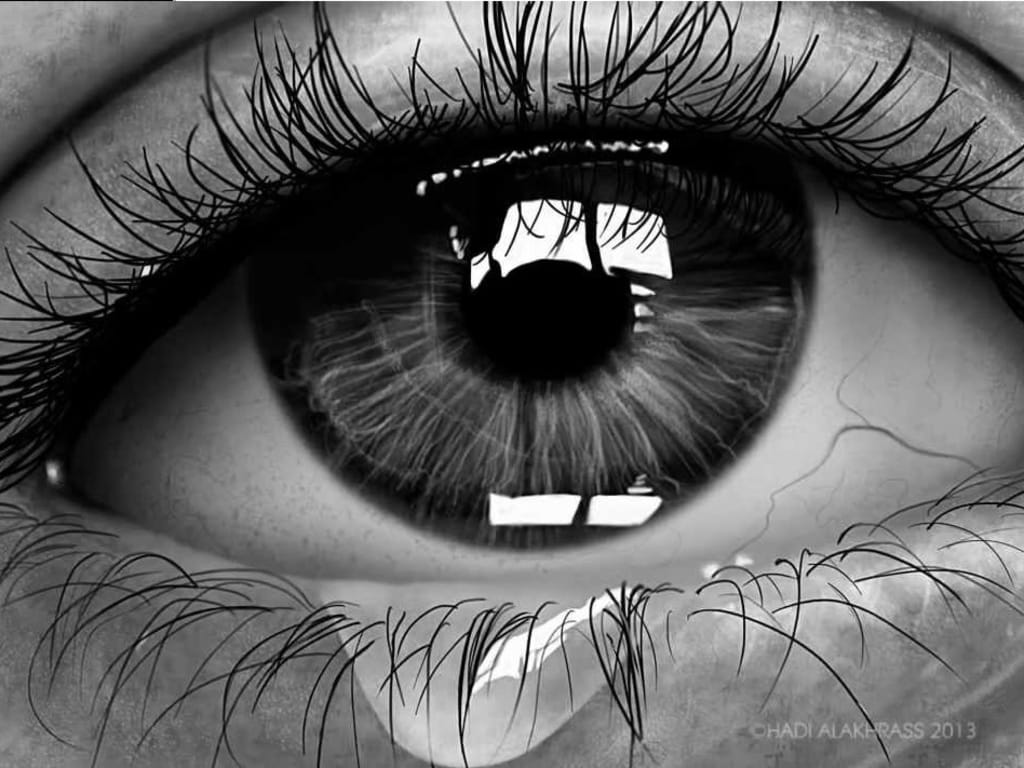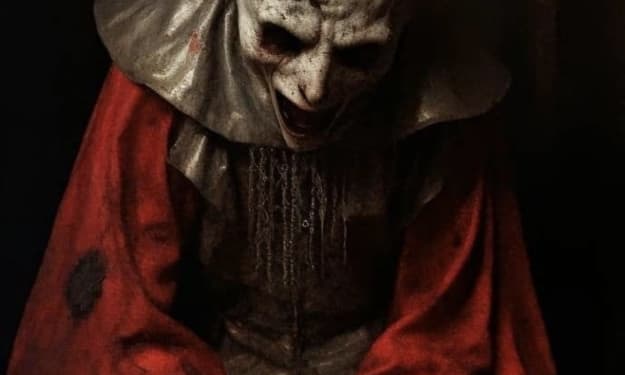Losing My Brother—Grief
Memoire on an Unexpected Loss

“Hi, I am the doctor in charge. Are you Jerry’s immediate family?”
“Yes”
“I am sorry to tell you that Jerry-Paul Tillus passed away.. He was found unconscious …"
I blanked; I could no longer hear what the doctor was saying. I fixed the beige wall, mouth shut, unable to know what to say. This doctor was certainly not talking about my brother! I talked to Jerry yesterday afternoon. I gave him a bottle of water, yesterday. He was alive yesterday…
Two hours ago, I was sleeping in peace. I never knew that the same morning would be a turning point in my life. My father woke me in a hurry. The only thing he said was, “Get dressed we have to go to the hospital." I obeyed. My mother’s first reflex was to open the TV.
“A young black man of 23 years was found in the pool last night”
I asked her calmly to turn off the TV. I was furious that she thought they were talking about my brother. I could hear my heart beating. This could not be possible. My mother ran to my brother’s room. It was empty. I saw the fear in everyone’s eyes. No one moved; no one knew what to do.
My brother died the night of August 7, 2013 at the age of 23. The only thing I know is that he drowned in a public pool. They were four people in total; one called the police, two simply left. He spent 20 minutes under the water. The media claimed it was a party. The police say it was an accident and closed the case. I personally never talked to the police. After my parents insisted, the police met them twice. About three weeks later, the pool was destroyed.
In cases like this, there are millions of unanswered questions. At first you do everything you can to find answers and this is when you get hurt. You tell yourself that someone is responsible for this death; someone must have pushed him. Then you wonder if he did it on purpose and you realize that it probably was an accident but someone could have reacted faster. Then you think and ask yourself, what about the ones who left? Do they at least get a punishment by the law? Does his death matter? You find yourself crying, wishing you could find something. You dream about scenarios. You get in the shower, close your eyes and recreate the scene. You put your face under the water until your breath gets taken away—maybe you’d be able to feel what he felt when he died.
The doctor finally left the room. I took my cell phone and sent an SMS to my best friend—maybe he’d know what to say—I had no answer. Needless to say, in those situations no one knows what to say or how to react. Unfortunately, when you lose someone, no one gives you a manual of how to get through it or how to help someone get through it. For me, the easiest thing to do was to deny it. I wanted to be in charge of everything. Be there for my mom who was devastated. She lost her only son. When we arrived home, she could not stand up. She threw herself on the floor and started crying. We put some blankets on the floor and forced her to eat and take her medical drugs. She refused to swallow. We had no choice. We forced the spoon in her mouth. She is diabetic and we did not want to lose her life too. She kept crying. Seeing my mother in this state is the worst image I have never seen. I wish nobody will ever live something like this. Yet, I did not believe my brother had died.
Ten days later, at the memorial, I remember the open casket. I slowly approached it. There was my brother’s body. I stayed still. I had no facial expression. I was suffocating; my brother was inside this box. I remember people’s cries. Someone fell in front of the casket. There were so many people in the room that I could not breathe. I closed my eyes and silently cried. I could feel water slowly going down my cheek. I could not take it anymore. My friends kept saying to stay strong; not to cry, to be there for my family because I was now the oldest child. They emphasized on how much my mother, my father and my little sister needed me to get over their pain. I listened, stopped crying and kept my pain to myself.
The next day, at the cemetery, everyone gathered around the grave to sing and give their last goodbyes. Suddenly, the casket slowly went down earth. My heart stopped. A part of me was leaving me forever. I fell on my friend. I cried with distress. No one ever told me to stop crying. They could feel the pain I, for a long time, kept trapped in a box. All these emotions were now out. I could not support my feet. My friend held me like a baby. I had no control of my body. I wanted to die. I wanted to take his place. I wanted him to be where I was. No, I could not accept his death. Worst, I could not deny it anymore; his body was buried in front of me. I had to live with it—live a life I was not ready for. I don’t remember how I got home. I just knew I was not the same anymore.
Losing a brother is losing a part of yourself. People who lose their brother are the most sadly forgotten. It is hard to find help since there are not a lot of experts on sibling loss. However, it is one of the most dreadful losses (DeVita-Raeburn 7). Brothers and sisters have a powerful link. Jerry was with me for 17 years. I used to see him every day. When I had concerns about life, he would be there for me. If I was crying, he would get mad in order to know what was wrong. He was the one with whom I could fight and argue and still love with all my heart. I could always rely on him for everything. He showed me how to behave, how to love myself, how to have pride and so much more. He was supposed to show me how to drive, how to enter college, how to enter the real world. He was a model. And now I was left alone. I felt alone.
Losing my brother made me lose my joy. I used to be a girl who smiled constantly. When he died, I truly believed that I did not deserve to be happy. If I’d smile, I’d be betraying my brother. How can you have joy if you have lost a part of you? I felt selfish every time I would have fun. I remember, every birthday, he used to wait until the day almost ended, come to me, look me in the eye and smile. He would kiss me on the cheek, wish me happy birthday, give me money and slowly leave. This was our thing. When he left, I felt like I deserved to grieve all my life. I isolated myself for more than a year. I did not celebrate Christmas, nor my birthday or any family gathering. Instead of accepting my pain, I turned it into frustrations. I was mad at the media for spreading rumors about my brother and at the police for not doing an effective job with my brother’s case. I was also mad at people who wanted to enter my life—I always thought that if I would drown they would leave me, like the two people did with my brother. Finally, I was frustrated against God for taking my brother away.
For a long period of time, I lived in fear. I was scared of everything. About five days after the funeral, I went out from home to get something in the car. It was one block away. I was alone, in the dark. I could not stop shaking. I was terrified. I was scared of being killed, scared of being attacked. I just ran back home and cried. Losing someone makes you scared of death. You realize that it can take you at any moment, any age, without any signs. I lived in this inexplicable fear for a while unable to tell anyone. Then, this fear turned into sadness and loneliness. I was scared and alone. I used to be so strong and happy but after his death I was vulnerable. No one could even look at me in the eye. No one knew how to comfort me; they were helpless. Even if they tried, they would take my pain, feel bad and avoid my eyes. I did not want to share my pain so I always ended up alone.
I finally started to get better when I dreamed of my brother. Two months after the funeral, I woke up in tears from my dream. I went to my parent’s bedroom and kept crying. The dream was too realistic for me to keep it to myself; Jerry was in tears. He apologized to my mom for leaving so soon. He warned us about people who were never there for him when he was alive, but were there at his funeral. He told me that we will never see him again. That he was gone for good. According to Kate Adam, and Brenda Hyde it is common for children who lose someone to find meaning to their grief in dreams. It helps them get through their grieving process. In my case, I found out that he key to move forward is to accept the pain. I learned to learn to live. When people cry, people tend to tell them to stop crying, that everything will be fine. No! Crying is a way to release the pain. Everything will be alright once you understand that you will never see the person you miss so much. I realized that it is impossible to accept someone’s death, you can only accept that you are hurt and learn to live without the person.
I chose to turn my frustrations and my pain into life goals. I wanted to make something out of that experiment which pushed me not to give up. I went to an english college and entered the same program my brother was in; commerce. I also regained faith. God gave me a brother; he had the right to take him back. Plus, he gave me good friends who were there for me. He brought our family closer. Overall, I learned to accept that I was hurt and not to hide my pain. Everyone grieves differently. Our society expects us to have a limited grief and move on during a certain amount of time. People forget that grieving can be a process expended through lifetime (Wortman et al.). A year after my lost, I was still recovering from my brother’s death, but I was learning to live without him day after day.
Works Cited.
Adams, Kate, and Brendan Hyde. "Children's Grief Dreams And The Theory Of Spiritual
Intelligence." Dreaming 18.1 (2008): 58-67. PsycARTICLES. Web. 19 June 2015.
DeVita-Raeburn, Elizabeth. The Empty Room: Surviving the Loss of a Brother or Sister at Any
Age. New York: Scribner, 2004. Print.
Wortman, Camille B., and Roxane C. Silver. "The Myths Of Coping With Loss." Journal Of
Consulting And Clinical Psychology 57.3 (1989): 349-357. PsycARTICLES. Web. 19 June 2015.






Comments
There are no comments for this story
Be the first to respond and start the conversation.